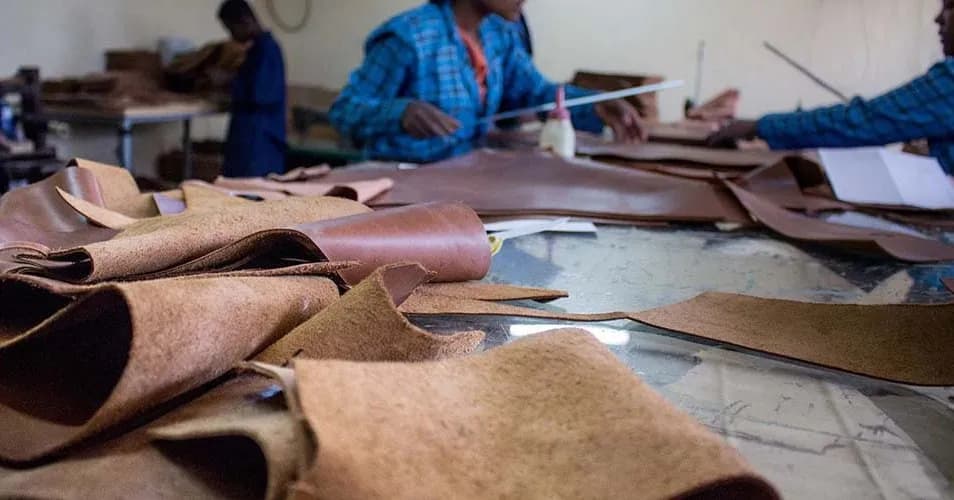Progress for 0 ad
Progress for 1 ad
Progress for 2 ad
Progress for 3 ad


Munir Shemsu
Addis Ababa, Ethiopia

Ethiopia’s leather industry gets a solid foot into international markets as three tanneries received certifications from the UK-based global industry association—Leather Working Group (LWG). Members of the Group include famous brands like Adidas, Giorgio Armani, and H&M, among hundreds of other buyers who rely on the certification to identify sustainably sourced leather for their supply chain.
Vetted for 17 criteria, which include pollution, water and energy usage, and information management, the certification grants the tanneries accessibility to international markets.
Elico, Awash, and Batu Tannery underwent a rigorous capacity-building program for four months before meeting the minimum criteria for the international audit. They also self-financed the necessary upgrades to qualify for the certification.
Wendu Legese, National Coordinator at UNIDO, indicates that the three companies mark the first Ethiopian-owned establishments to get LWG’s nod. UNIDO provided technical and training assistance to the three tanneries in helping them qualify for the international audit.
“The biggest buyers in the world are part of the group (LWG),” Wendu told Shega.
The former head of Ethiopia’s Leather Industry Development Institute (LIDI) foresees significant benefits to the export competitiveness of products coming out of the tanneries. He also pointed out that the experiences of the tanneries would be replicated nationally in collaboration with LIDI.
“International markets demand traceability from their products,” Wendu says.
Ethiopia’s leather industry has faced significant challenges over the past few years stemming from poor hide collection, inadequate foreign currency to buy chemicals, and dwindling production. Despite having the largest livestock population in Africa, exports have continued to plummet, falling by nearly 30% just in the third quarter of 2023/24.
While the LWG certification is strictly limited to the on-site operations of the tanneries, industry insiders expect trickle-down benefits across the whole sector.
Zulfikar Abajahi, Head of LIDI, acknowledges the presence of systemic issues crippling the capacity of the leather industry, which need to be tackled one step at a time. He says the ten-year leather industry strategy aims to tackle several challenges, including hide collection and access to tanning salts.
“Our leather inputs remain intimately tied to our butchering practices,” Zulfikar told Shega.
He expects increased traceability brought about by the certification of the tanneries to introduce replicable standards for the rest of the industry.
Zulfikar recalled that most tanneries in Ethiopia have lacked the technical and institutional capacity to adhere to international sustainability standards. The official hopes to see improvements in adhering to environmental priorities as the local leather industry grows.
The three that received LWG’s approval will be audited again after two years to verify whether they have persisted in adhering to the requirements.
👏
😂
❤️
😲
😠

Munir Shemsu
Munir S. Mohammed is a journalist, writer, and researcher based in Ethiopia. He has a background in Economics and his interest's span technology, education, finance, and capital markets. Munir is currently the Editor-in-Chief at Shega Media and a contributor to the Shega Insights team.
Your Email Address Will Not Be Published. Required Fields Are Marked *